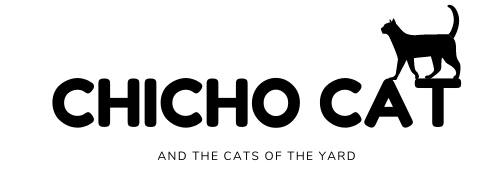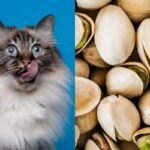Pumpkin, with its vibrant color and festive associations, is a staple in many households, particularly during the fall season (also grapes, pineapple and carrots are autumnal). Beyond its decorative appeal and culinary versatility, pumpkin has also gained recognition for its potential health benefits, including aiding in digestion and promoting overall wellness. But can cats partake in this seasonal favorite, and is it safe for them to consume?
Pumpkin is a nutrient-rich food that offers several potential health benefits for cats. It is low in calories and fat (such as broccoli and lettuce), making it a suitable option for overweight or obese cats. Additionally, pumpkin is an excellent source of dietary fiber, which can aid in digestion and alleviate certain gastrointestinal issues, such as constipation or diarrhea.

The soluble fiber found in pumpkin helps absorb excess water in the digestive tract, which can firm up loose stools in cats with diarrhea. Conversely, the insoluble fiber adds bulk to stools, facilitating bowel movements in cats struggling with constipation. As a result, pumpkin can serve as a natural remedy for various digestive issues in cats, offering relief without the need for harsh medications.
Can cats eat pumpkin seeds?
Pumpkin seeds, also known as pepitas, are the edible seeds found within the flesh of pumpkin fruits. They are a rich source of protein, healthy fats, dietary fiber, vitamins, such as vitamin E and B vitamins, and minerals, including zinc, magnesium, and iron (also catnip is rich in iron). These nutrients offer several potential health benefits for cats when incorporated into their diet in moderation.
One of the primary benefits of feeding pumpkin seeds to cats is their high fiber content. Fiber plays a crucial role in promoting digestive health and regular bowel movements. Furthermore, pumpkin seeds are a natural source of essential fatty acids, including omega-3 and omega-6 fatty acids, which are vital for maintaining healthy skin and coat in cats. These fatty acids also support overall immune function and may have anti-inflammatory properties, contributing to your cat’s overall well-being.

Can cats eat pumpkin pie?
Pumpkin pie, with its rich, creamy filling and warm spices, is a beloved dessert enjoyed by many during the fall season and holiday gatherings. Pumpkin pie is a dessert typically made from a mixture of pumpkin puree, sugar, eggs, milk or cream, and a blend of spices such as cinnamon, nutmeg, and cloves, all baked in a flaky pie crust. While some of the individual ingredients in pumpkin pie may be safe for cats in moderation, the overall composition of this dessert is not suitable for feline consumption.
One of the primary concerns with feeding pumpkin pie to cats is its high sugar content. Additionally, the rich, creamy filling of pumpkin pie is typically made with dairy products, which can be difficult for cats to digest, particularly those with lactose intolerance. Furthermore, the spices commonly used in pumpkin pie, may not agree with cats’ sensitive stomachs. Pumpkin pie should be reserved for human consumption only and kept out of reach of curious feline companions.

Can cats eat pumpkin puree?
Rich in fiber, vitamins, and minerals, pumpkin puree offers several potential advantages for cats, promoting overall well-being. It’s essential to understand that cats have specific dietary requirements that differ significantly from those of humans (check here a list of human foods which cats may eat). Pumpkin puree is made by cooking and blending pumpkin flesh into a smooth, creamy consistency.
Furthermore, pumpkin puree is a natural source of moisture, which can be beneficial for cats, particularly those prone to dehydration or urinary tract issues. Adding pumpkin puree to your cat’s diet can help increase their overall water intake and support urinary tract health. Pumpkin puree can be served as a standalone treat or mixed with your cat’s regular food to encourage consumption.
Can cats eat raw pumpkin?
Raw pumpkin, with its natural sweetness (like strawberries, mango, watermelon and melon), is the uncooked flesh of the pumpkin fruit, typically peeled and cut into cubes or slices. Start with small amounts and monitor your cat’s response closely. Some cats may enjoy the taste and texture of raw pumpkin, while others may be indifferent or even dislike it. Choose pumpkins that are fresh, firm, and free from mold or signs of decay. Wash the pumpkin thoroughly before peeling and cutting it into small, manageable pieces for your cat to consume. Avoid offering pumpkin seeds or any other parts of the pumpkin that may pose a choking hazard or digestive issue for cats.

Can cats eat canned pumpkin?
Canned pumpkin, a convenient and versatile pantry staple, is commonly used in a variety of recipes and dishes. While humans enjoy canned pumpkin in baked goods, soups, and smoothies, pet owners may wonder whether this convenient ingredient is safe for their feline companions. Canned pumpkin is made from cooked, pureed pumpkin flesh, typically packed without any additional ingredients or preservatives. Read the label carefully to ensure the canned pumpkin contains only pumpkin puree. Additionally, store any unused canned pumpkin properly in the refrigerator to maintain its freshness and quality.
Can cats eat pumpkin bread?
Pumpkin bread, with its warm spices and comforting aroma, is a beloved baked treat enjoyed by many. Pumpkin bread is a baked good typically made from a mixture of pumpkin puree, sugar, flour, eggs, oil or butter, and a blend of spices and nuts. One of the primary concerns with feeding pumpkin bread to cats is its high sugar and fat content. Cats lack the necessary enzymes to efficiently process sugars and fats.

Furthermore, pumpkin bread often contains additional ingredients such as raisins or chocolate chips, which can be toxic to cats. Raisins and chocolate are well-known hazards for cats and can cause serious health issues, including kidney failure and neurological problems, if ingested. While a small taste of pumpkin bread is unlikely to cause immediate harm to your cat, regular or significant consumption is not recommended.
Can cats eat pumpkin spice?
Pumpkin spice is a popular spice mix by cinnamon, nutmeg, ginger, cloves, and sometimes allspice, which adds a festive touch to a wide array of culinary delights. Pumpkin spice itself is a blend of several aromatic spices commonly used in baking and cooking. While individual spices like cinnamon and ginger are generally safe for cats in small amounts, the concentrated combination found in pumpkin spice blends may pose potential risks to feline health.

For example, nutmeg, a common ingredient in pumpkin spice blends, contains a compound called myristicin, which can be toxic to cats in large quantities. Additionally, some cats may have sensitivities or allergies to certain spices commonly found in pumpkin spice blends. While a small taste of pumpkin spice is unlikely to cause immediate harm to your cat, it’s best to err on the side of caution.
In conclusion, pumpkin can be a beneficial addition to your cat’s diet, offering natural digestive support and promoting overall wellness. When offered in moderation, pumpkin can provide a tasty and nutritious treat for your feline friend. As always, prioritize your cat’s health and consult with your veterinarian if you have any concerns or questions regarding their diet or nutritional needs.








